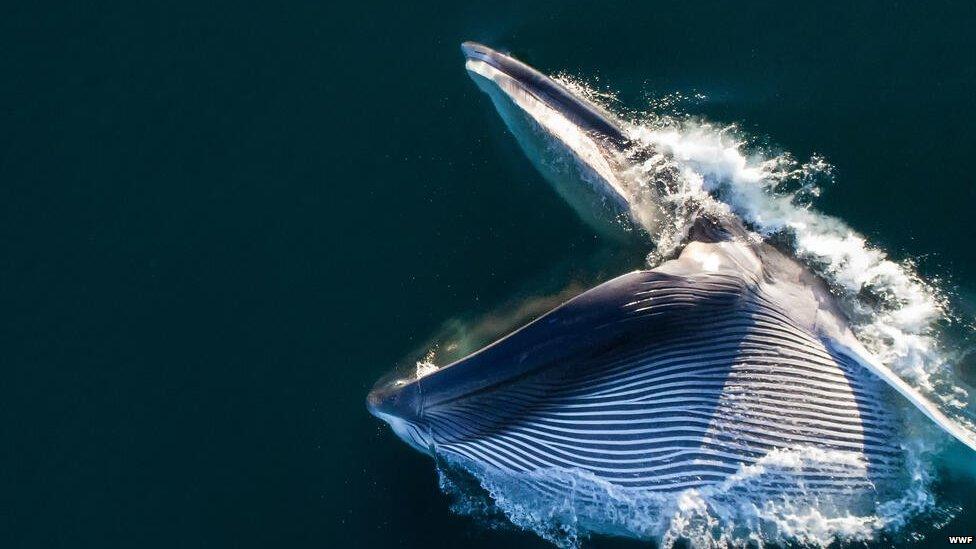Blue Corridors: Whales need protecting from human activity
- Published
- comments

A new report by the conservation charity the WWF reveals the first global map of whale migration routes, also known as 'blue corridors,' and says that human activity is threatening the species.
Whale's spend their lives migrating, meaning they travel from one place to another, for food or for breeding purposes. They can travel thousands of miles and go on longer journeys than most mammals on earth do.
The WWF are calling for fast action to protect the creatures along these routes.
These two bowhead whales had their picture taken in Canada!
On their journeys, some whales are getting caught in fishing nets and coming face-to-face with "chemicals, plastic and noise pollution, habitat loss, and climate change," says WWF whale expert, Chris Johnson.
Six out of thirteen great whale species are now classified as endangered or vulnerable.
Ahead of World Whale Day on Sunday 20 February, there are growing calls for a global agreement to be put in place to protect vulnerable species in the waters.
Whales are divided into two main groups. Baleen whales and toothed whales. Baleen whales have 'baleen' plates in their mouths instead of teeth which help them filter out certain food! Toothed whales have teeth which enable them to feed on larger prey such as fish and squid.
Scientists estimate that some species of Whales can live for more than 200 years!
Blue whales are the largest animals to have EVER lived on earth!
WWF's Chief Marine adviser, Dr Simon Walsmley, says that fin and humpback whales often come to the UK seas, but there are high risks "from fishing gear entanglement, to ship strikes, to impacts from noise pollution."
Ship strikes are when a whale or any marine animal has a collision with a boat.
WWF and the UN are hoping for an international agreement to be put in place to protect the mammals.
The report suggests that it's not just whales that could benefit from 'blue corridors', but the planet too.
Whales play a part in "ocean health and our global climate, with one whale capturing the same amount of carbon over its lifetime as thousands of trees," says the WWF.
